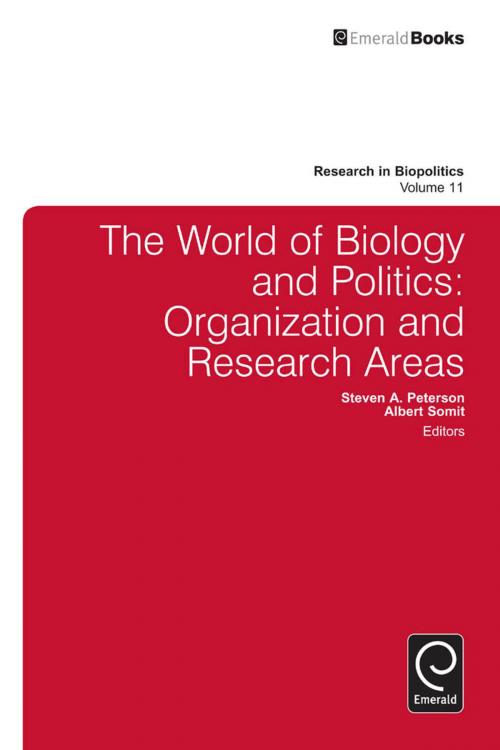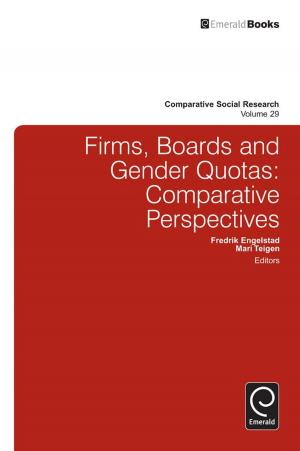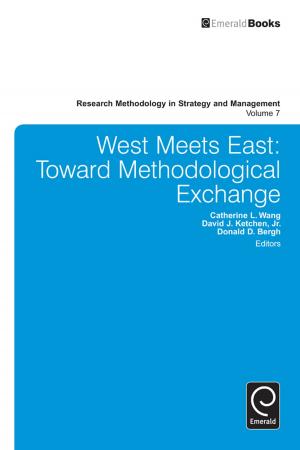The World of Biology and Politics
Nonfiction, Social & Cultural Studies, Political Science, Politics, History & Theory, Science & Nature, Science| Author: | ISBN: | 9781781907290 | |
| Publisher: | Emerald Group Publishing Limited | Publication: | October 10, 2013 |
| Imprint: | Emerald Group Publishing Limited | Language: | English |
| Author: | |
| ISBN: | 9781781907290 |
| Publisher: | Emerald Group Publishing Limited |
| Publication: | October 10, 2013 |
| Imprint: | Emerald Group Publishing Limited |
| Language: | English |
This volume describes (a) the present academic and institutional status of Biopolitics and (b) the wide range of research areas that have emerged within the field. The Introduction puts into perspective the major differences and similarities between Biopolitics and more traditional approaches to political science in terms of basic concepts, scope, research methodology, and the resulting implications for public policy. The next two chapters focus on the institutions and organizations that have significantly influenced the structure and direction of the "movement." Chapter 4 describes how and why evolutionary theory has had an increasingly influential impact on political science. Chapters 5 through 9 are "case studies" of how biological perspectives have been productively used in several of the discipline's established "fields." Chapter 10 is a measured critical analysis of the enterprise and Chapter 11 looks at where biopolitics as a field might be moving.
This volume describes (a) the present academic and institutional status of Biopolitics and (b) the wide range of research areas that have emerged within the field. The Introduction puts into perspective the major differences and similarities between Biopolitics and more traditional approaches to political science in terms of basic concepts, scope, research methodology, and the resulting implications for public policy. The next two chapters focus on the institutions and organizations that have significantly influenced the structure and direction of the "movement." Chapter 4 describes how and why evolutionary theory has had an increasingly influential impact on political science. Chapters 5 through 9 are "case studies" of how biological perspectives have been productively used in several of the discipline's established "fields." Chapter 10 is a measured critical analysis of the enterprise and Chapter 11 looks at where biopolitics as a field might be moving.















